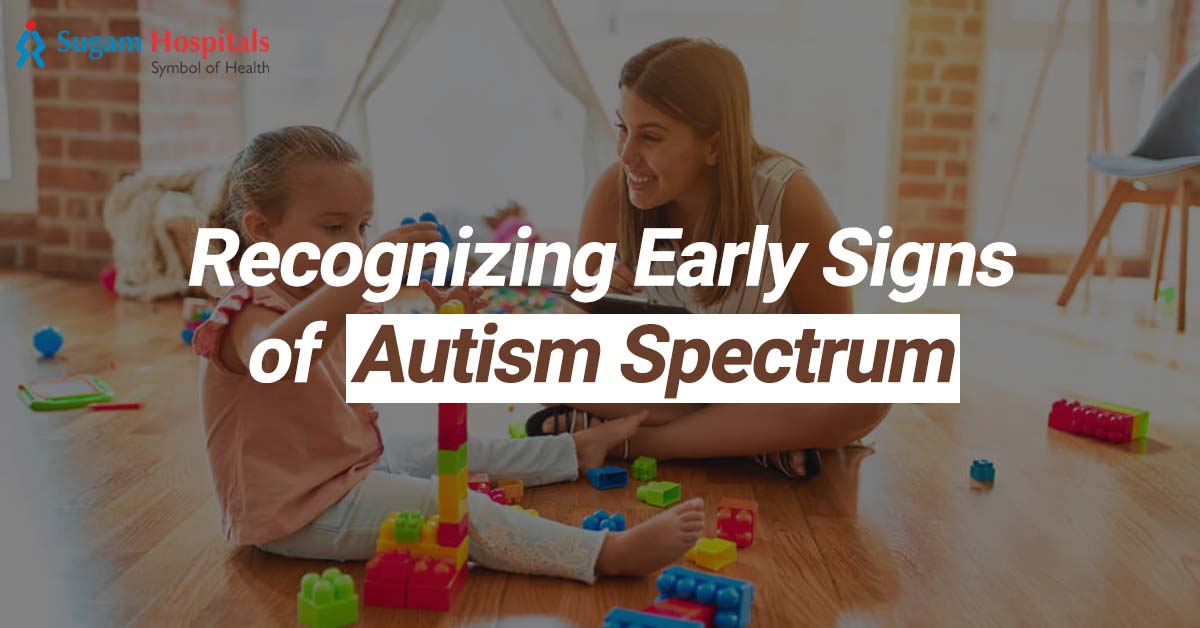Recognizing Early Signs of Autism Spectrum

Recognizing Early Signs of Autism Spectrum
August 9, 2025 by adminAutism Spectrum Disorder (ASD) affects a person’s communication, engagement and interpretation of the world around them. The signs may begin to emerge in early childhood, but they are not always immediately visible. Early identification can make a big difference in supporting a child to get the support they need at the right time.
Understanding Autism Spectrum Disorder
ASD is called a “spectrum” because of the variation within characteristics and severity. Some children may have fairly subtle variations that are much more difficult to identify than other children who appear to clearly display signs of autism within the first year of life. Often, the earliest signs will relate to language, social interaction, and behavior.
Though every child develops at their own pace, consistently not meeting developmental milestones may be an early flag that further evaluation is warranted. Early intervention with deliberate support from a pediatric specialist may improve communication skills and learning development, as well as social development.
Social and Communication Signs
Social engagement is one of the first areas where parents may see differences. Children and toddlers with autism may:
- Show less interest in making eye contact, or responding to smiles.
- Not reliably respond to their name by 9–12 months.
- Use less gestures, such as waving or pointing, to communicate needs.
- Talk later than peers, or lose words after acquiring them.
In some instances, the child may talk on time, but uses language in an atypical way: repeating phrases, using a very formal tone, or talking mostly about a single topic.
Behavioral and Sensory Differences
Children on the autism spectrum may interact with their world in various unique ways. They may:
- Repeat movements, including rocking, hand-flapping, or spinning objects.
- Insist on a routine, which can lead to feelings of distress when those routines are altered.
- Focus intensely on certain objects or topics for long periods.
These behaviours are not simply “quirks,” they may indicate different modes of brain processing.
Developmental Milestones and When to Seek Advice
While parents typically use milestone charts to document the development of their child, with developmentally atypical conditions such as autism, deviations from the chart may be subtle and enter the picture gradually. For example, if your child has not babbled by 12 months, not spoken a word by 16 months, or combined two words into a short sentence by age 2, these are issues worth taking up with your pediatrician.
At other times, your concern may arise because the child has suddenly lost previously acquired speech or social skills. After documentation of regression, assessment is warranted immediately.
Why Early Recognition Matters
The sooner children are diagnosed with autism, the sooner they can begin individualized treatment. Speech therapy, occupational therapy and behavioral therapies work best if they commence early, during the peak time of development.
Early diagnosis helps families to access various resources, including special education, support groups, etc. This will be advantageous not just for the child, but will steer parents down the right paths to take in their everyday lives.
Partnering with Specialists for the Right Support
If you see any signs that worry you, the first baby step in the assessment process is a developmental screening that you do with your pediatrician. They may suggest that you refer to specialist services such as a child psychologist, a speech-language pathologist or developmental pediatrician.
With a full health team that will support you in creating a plan of care that meets your child’s individual needs, as it relates to communication, learning and socializing.
To recognize the early signs of autism spectrum disorder, moments of awareness, patience and time to think about developmental timing are necessary. Taking action and trusting your parental instincts when you notice things are “different” will greatly contribute to your child’s journey.
With the right intervention, many children on the autism spectrum learn, grow and connect in their own unique ways. At Sugam Hospital, we help children achieve their maximum potential. Our pediatric specialists are capable of spotting potential red flags, conduct regular screenings, provide a diagnostic process and assess a child’s care needs. If you are looking for the Best Pediatric Hospital in Chennai, we will be here to help your child grow, every step of the way.

